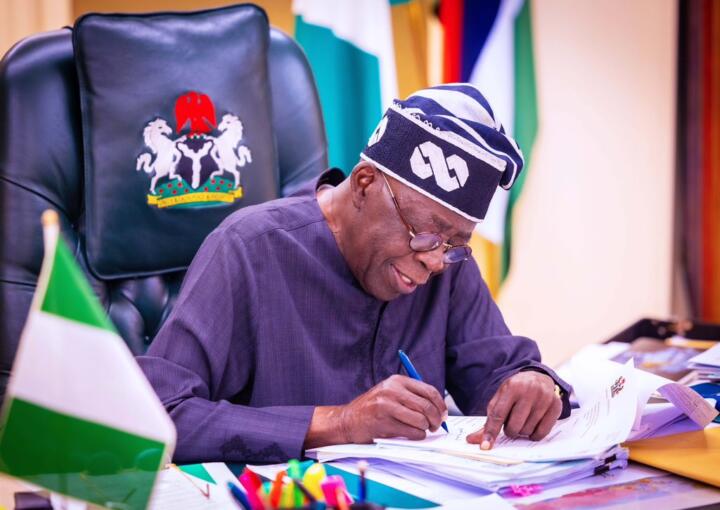Nigeria has recently inked a groundbreaking $500 million gas export deal with Germany, marking a significant stride in the burgeoning economic partnership between the two nations. The Minister for Industry, Trade, and Investment, Dr. Doris Uzoka-Anite, announced this development on November 21 via a statement on Twitter.
The agreement involves the signing of two Memoranda of Understanding (MoUs), solidifying collaboration on gas exports and renewable energy initiatives. The first MoU was between Riverside LNG of Nigeria and Johannes Schuetze Energy Import AG of Germany, focusing on the supply of gas from Nigeria to Germany. The second pact involved Union Bank of Nigeria and DWS Group, aimed at fostering cooperation in $500 million worth of renewable energy projects within Nigeria.
President Bola Tinubu, who witnessed the signing of these pivotal agreements, expressed optimism about the expanding economic ties between the Federal Republic of Nigeria and the Federal Republic of Germany. In his remarks, President Tinubu emphasized the end of the arbitrage regime, encouraging foreign investors to bring their money in and out of the country with ease. He reassured them of a reliable team poised to address any challenges, urging a focus on building a relationship that fosters progress and prosperity in Nigerian-German relations.

“The arbitrage regime is gone forever. Now, you can bring your money in and out as you wish. If you encounter any problems, rest assured that I have built one of the most reliable teams Nigeria has seen to address them. I appeal to you to forget the past and focus on building a relationship that removes obstacles, fostering progress and prosperity in Nigerian-German relations. You can rely on us; we can rely on you; both of us can chorus Hallelujah at the same time,” said President Tinubu.
Adding depth to the context, the engagement between President Tinubu and German Federal Chancellor Olaf Scholz during a meeting at the G20 Compact with Africa Investment Summit in Berlin holds particular significance. The discussions revolved around Nigeria’s aspirations for increased German investment, with President Tinubu expressing a keen interest in collaborating with German companies, particularly Siemens AG, to revamp Nigeria’s power and rail sectors.
President Tinubu underscored the administration’s enthusiasm for forging robust partnerships with German firms to bring about transformative changes in Nigeria’s power sector. Chancellor Scholz acknowledged the existing challenges, both administrative and financial, within Nigeria’s power sector, emphasizing the need for urgent attention.
While recognizing the substantial electricity production in Nigeria, Chancellor Scholz pointed out the critical issue of inadequate distribution to the population. He highlighted the necessity of establishing stations and improving infrastructure on the grid to address this discrepancy. Chancellor Scholz also mentioned Siemens’ readiness with a plan to enhance implementation but emphasized the importance of follow-up actions by the new Nigerian government to advance these commitments.
This strategic collaboration not only signifies a landmark achievement in Nigeria’s economic landscape but also underscores the commitment of both nations to address critical challenges and work towards sustainable solutions. As the $500 million gas export deal and renewable energy projects unfold, they are poised to contribute significantly to Nigeria’s economic growth and reinforce the bonds between the Federal Republic of Nigeria and the Federal Republic of Germany. Infostride News will continue to monitor and provide updates on these developments as they progress.
Support InfoStride News' Credible Journalism: Only credible journalism can guarantee a fair, accountable and transparent society, including democracy and government. It involves a lot of efforts and money. We need your support. Click here to Donate
